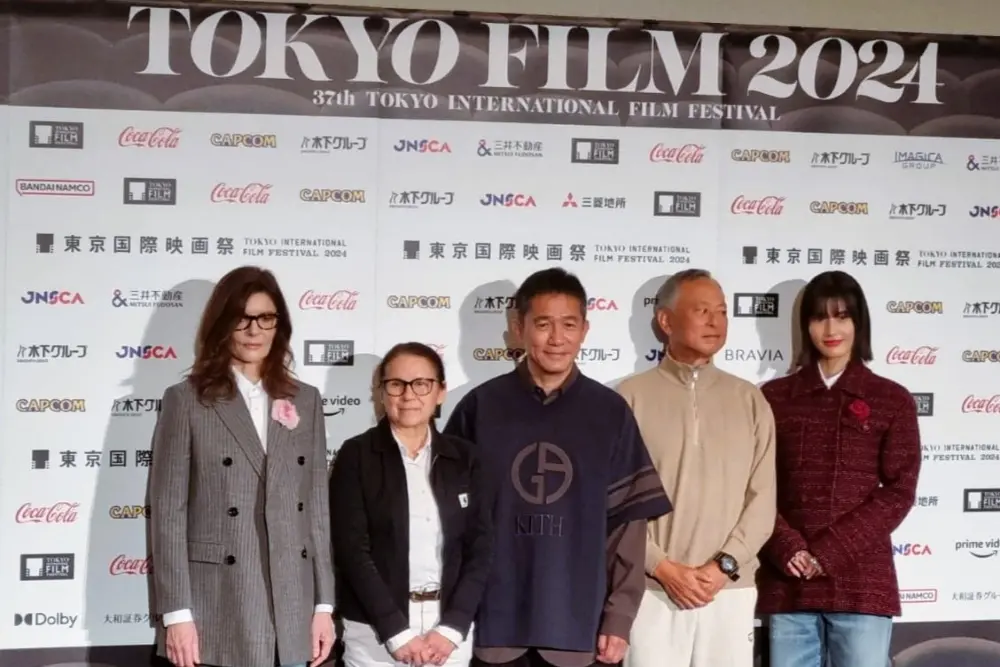Film festivals: champions of hidden cinematic gems
Uncovering the truth behind the glamor
Hungarian film director Ildiko Enyedi recently cast a spotlight on the profound impact that film festivals have on the discovery of new talent and unique works. Speaking at the Tokyo International Film Festival, where she began her role as a jury member on Tuesday, Enyedi emphasized the vital role that festivals play in the filmmaking ecosystem.
“Festivals are the allies of the filmmakers,” she stated. “They help to uncover the truth of our work as filmmakers. It is a sort of game, shining light on the hidden gems. The press too are allies and part of this process,” she expressed at a jury-meets-media encounter in the bustling Japanese capital.
The delicate balance of selecting films
Enyedi further elaborated on the complexities involved in curating a film festival. “It is not easy to have a strong and important festival and at the same time find hidden treasures. In programming, it’s much easier just to pick the big names. Rather, it is a refined and delicate work to find the hidden gems. And thanks to this festival, some films can have a brave and successful journey.”
This sentiment is critical for understanding how festivals wield significant influence over the trajectory of films, propelling lesser-known works into the limelight and giving them a platform to reach a wider audience.
The esteemed Tokyo jury panel
The Tokyo main competition jury boasts a distinguished panel led by Hong Kong superstar Tony Leung Chiu-wai, known for his evocative performance in In the Mood for Love. Leung is currently collaborating with Enyedi on the film Silent Friend. The jury also includes Franco-Italian actor Chiara Mastroianni, Hong Kong director and producer Johnny To, and Japanese actor Hashimoto Ai.
Leung praised the Tokyo festival for its “very broad, visionary view” with an eclectic mix of new and emerging directors, a women’s empowerment section, and retrospectives. “We’re not only introducing what is current, but also the vast history of cinema. It is a wonderful opportunity for audiences to learn and feel cinema,” he remarked, reinforcing the festival’s commitment to inclusivity and education.
A tribute to cinema’s communal experience
Chiara Mastroianni gave a heartfelt speech about the essence of experiencing films in a cinema. “Festivals are not only an occasion to discover wonderful filmmakers but also an occasion for some people to discover what it is like to watch a movie in a theatre, with people surrounding you, people you don’t know, but who you’re going to share this experience with. Watching a film on the big screen, in a real movie theatre, is wonderful,” she said.
This statement resonates deeply with cinema enthusiasts who cherish the shared experience of watching films in a traditional theatre setting, a stark contrast to the individualistic nature of modern streaming.
Jury dynamics and the importance of open perspectives
Johnny To offered an intriguing perspective on the flexibility required for jury members. “In the past, I had anticipation or expectations before watching a film. In most cases, I was disappointed. So now, I try not to have any filters or divisions before seeing a movie. It should be more intuitive,” he advised, highlighting the importance of an open mind when judging films at a festival.
Tony Leung admitted his initial anxiety over the responsibility of being the jury president. “We are going to have discussions as jury members after seeing these movies. Maybe I’m not educated enough, or smart enough, but I will try my best not to make mistakes,” he confessed.
Ildiko Enyedi, however, provided reassurance and clarity on the process. “A film works on you, first of all through your senses, through your guts, and only then, through your intellect. Your gut feelings can be actually educated. That’s what we call culture,” she explained. This emphasizes the importance of intuitive reactions to films, which are later supported by intellectual discourse and analysis.
The value of film education
Enyedi also advocated for the significance of film education, stating, “That’s why film education is so important. It gives us more tools to translate our feelings into words in a discussion. But the gut always has priority.” Her insights underscore the intricate balance between sensory perception and intellectual evaluation in understanding and appreciating cinema.
The Tokyo International Film Festival stands as a testament to the power of cinematic discovery, offering audiences and filmmakers alike an invaluable platform to showcase and appreciate the art of filmmaking. As these esteemed jury members continue to champion both prominent and emerging talents, they reinforce the festival’s role as a beacon of cultural enrichment and artistic celebration.
Engage with more insights on your favorite films and directors by sharing this article on social media and staying tuned for further updates.

 Italian
Italian







